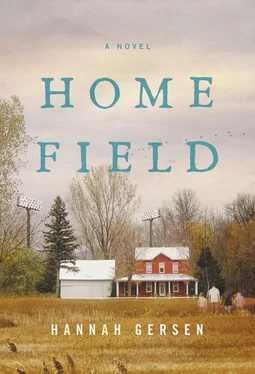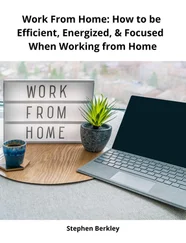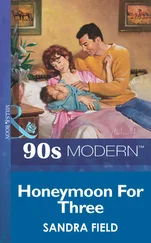The sadness was coming back, overwhelming her. It was thinking about her brothers that did it. She thought of Bryan, praying to some made-up father in the sky. And then she thought of Robbie wandering around town, going from pay phone to pay phone, calling her when who he really wanted to call was their mother. This drug was too much, it brought on too much, and that was why people like Gabe and Raquel liked it, because they loved this feeling of too much, because they didn’t know what too much was really like. She had to get away from them. She had to get away from these too-much people.
She took off running, exiting the ballroom through one of the floor-to-ceiling windows and jumping out onto the front lawn. Some people heading into the party cheered on her apparently high spirits and she thought of the cross-country meet she had gone to after waking up in Laird Kemp’s empty house. She had been wearing the same cloth Mary Jane shoes. She could feel the evening dew seeping through to her bare feet the same way it had that morning. Thinking of Laird brought a glimmer of happier feelings. Not sexual feelings, though. The drug made her detached from that part of herself, which was strange because she thought ecstasy meant wanting to touch soft objects and dance and stare into other people’s eyes and be romantic. She didn’t want to touch anything. That was why running was good; your feet barely touched the ground when you ran, you got to be airborne.
She remembered her mother showing her how horses ran. The leaps they took. All four legs off the ground.
Her mother had died with her feet off the ground. Not airborne. Not floating. Hanging. Suspended by the neck. That was the proper definition. Stephanie had caught Robbie looking it up. She knew he knew anyway. That he had just wanted to put words on what he’d seen.
She was running downhill. Down a winding sidewalk broken up by steps. When the steps came in twos and threes, she leaped them, not wanting to slow down. She didn’t care if she fell. If she fell, then people would see that she was hurt.
Her mother had wanted people to see that she was hurt.
Her mother had done an amazing thing: she had taken invisible, inarticulate, unnamable suffering and made it visible.
Suicide as transubstantiation.
The plastic soles of Stephanie’s flimsy shoes slapped the paving stones as she followed the sidewalk toward her dormitory. She felt like she was going fast, she felt like she was outrunning something and at the same time tunneling deeper. A memory bloomed: Confirmation class. Twelve years old. Asking Pastor John if you had to take Communion literally, like the Catholics did. The answer was no, it was a metaphor.
What else is a metaphor?
Nothing, Pastor John said.
But Stephanie knew he was lying.
She had gotten confirmed anyway, for her mother’s sake. Her mother who thought you had to do it. As if God would kick you out of heaven if your papers weren’t in order.
Heaven was obviously a metaphor.
As was the Resurrection.
Probably the divine birth, too.
But what about the Crucifixion?
That was supposed to be real. That was a kind of bodily suffering you were supposed to imagine. You were supposed to think of that pain, all that pain, and behave better. It didn’t make sense. Jesus could have done more good by staying alive. Maybe he had gotten tired. Maybe he had said, Enough, God! Just let me die! Maybe he wanted to inflict his misery onto the world. Maybe Jesus was just another fucked-up suicide case.
Stephanie had reached the freshman quad. Her lungs burned, and the bottoms of her feet felt almost bruised. Her dorm was on the north end of the quad. She looked up at the tall building with its gray stone exterior.
She hurried to the front door, punching in her key code mindlessly, the numbers already more of a physical memory than a mental one. She ran up the back stairs and found her room empty and unlocked.
The overhead lights were dimmed, but Theresa’s lamps were on. Her computer monitor glowed in the corner, the screen white with the blank space of a just-started document. “Man on the Moon” played softly from Theresa’s stereo, the dreamy lyrics so familiar to Stephanie it was like pulling on an old sweater. She sat down on the rug in the middle of the floor and began to cry.
“Stephanie?” Theresa stood in the doorway. She was wearing plaid flannel pajama bottoms and a thermal top with little roses on it. Her long hair was wet from the shower. “Where’s Raquel?”
“She gave me ecstasy,” Stephanie said. “I’m having a bad time. I think I need to see a doctor, maybe I’m allergic? I don’t know.”
“How many did you take? Is it a pill? I thought it was a rave drug?” Theresa looked disoriented. “I can call my parents.”
“No. Don’t call your parents. What can your parents do? I need to see someone in person.”
“Okay, okay, calm down. We could go to the health center?”
“No, I need a hospital where they can check my blood.”
“A hospital? You mean, like, the ER?”
“Yes! Let’s go there!” The thought of a waiting room, the thought of an orderly with a clipboard, of uncomfortable vinyl seating, of beige linoleum, of old magazines with wrinkled, torn covers, of benign watercolors cheaply framed, of all the banalities and conventions of hospital care, which existed to disguise death and disease, comforted her deeply.
Stephanie got her keys from her desk drawer and handed them to Theresa. “I have a car, you can drive it. Just drive me to the hospital, please, just do it.”
“What about your parents?” Theresa said. “I know you don’t get along with your dad, but maybe we could call your mother?”
“My mother’s dead,” Stephanie said. “She killed herself in June.”
DEAN AND LAURA sat on Laura’s sofa eating Ritz crackers with peanut butter and drinking Jack Daniel’s. He thought he’d never eaten anything better — the salty peanut butter mixed with the faintly sweet crackers mixed with the sweetish liquor. His appetite was good, his body relaxed from a long hour upstairs in Laura’s pale green room.
“I’m sorry I don’t have anything better to eat,” Laura said. “I usually go shopping on Saturday, but I didn’t want to run into anyone from Tim’s family. I almost drove to Frederick to go to that fancy grocery store — Shank’s? Have you been there?”
“Yeah,” he said, smiling, realizing he didn’t have to explain his connection to Shank’s — to the Shanks —if he didn’t want to, that everything with Laura could be reframed.
“I wish I would have gone,” Laura said. “There’s nothing for breakfast here.”
“We can go out,” Dean said. “We can go to the Red Byrd.”
“Won’t people see us?”
“So what if they do?”
She studied his face. “What are you saying?”
“I don’t want to sneak around anymore. I’ve been sneaking around, hiding things for years. I’m tired of it. What do we have to hide? There’s no reason we can’t be together.”
“What about Robbie?”
“We can figure it out. This can’t be the first time something like this has happened.”
“No, I guess not,” Laura said. There was something measured about her expression, as if she was trying to hide her enthusiasm. He wanted to tell her not to worry, that there was nothing she could say that could frighten him. She could start talking about having kids and he’d start listing names. He was just happy to be with someone who could accept his love — of life, of the future.
“You know I love you,” he said, kissing the inside of her wrist. He kept his lips there for an extra beat, wanting to feel her pulse.
THE HOSPITAL STAFF was treating Stephanie like she was another idiot kid, but that was fine with Stephanie; she wanted to be something that simple. She sat on an examining table in a very small room. She was alone; Theresa had gone to get snacks, and the nurses had pretty much stopped checking on her. It had taken hours to get to this examining table; college kids high on illicit drugs were not a priority in a busy city hospital.
Читать дальше












